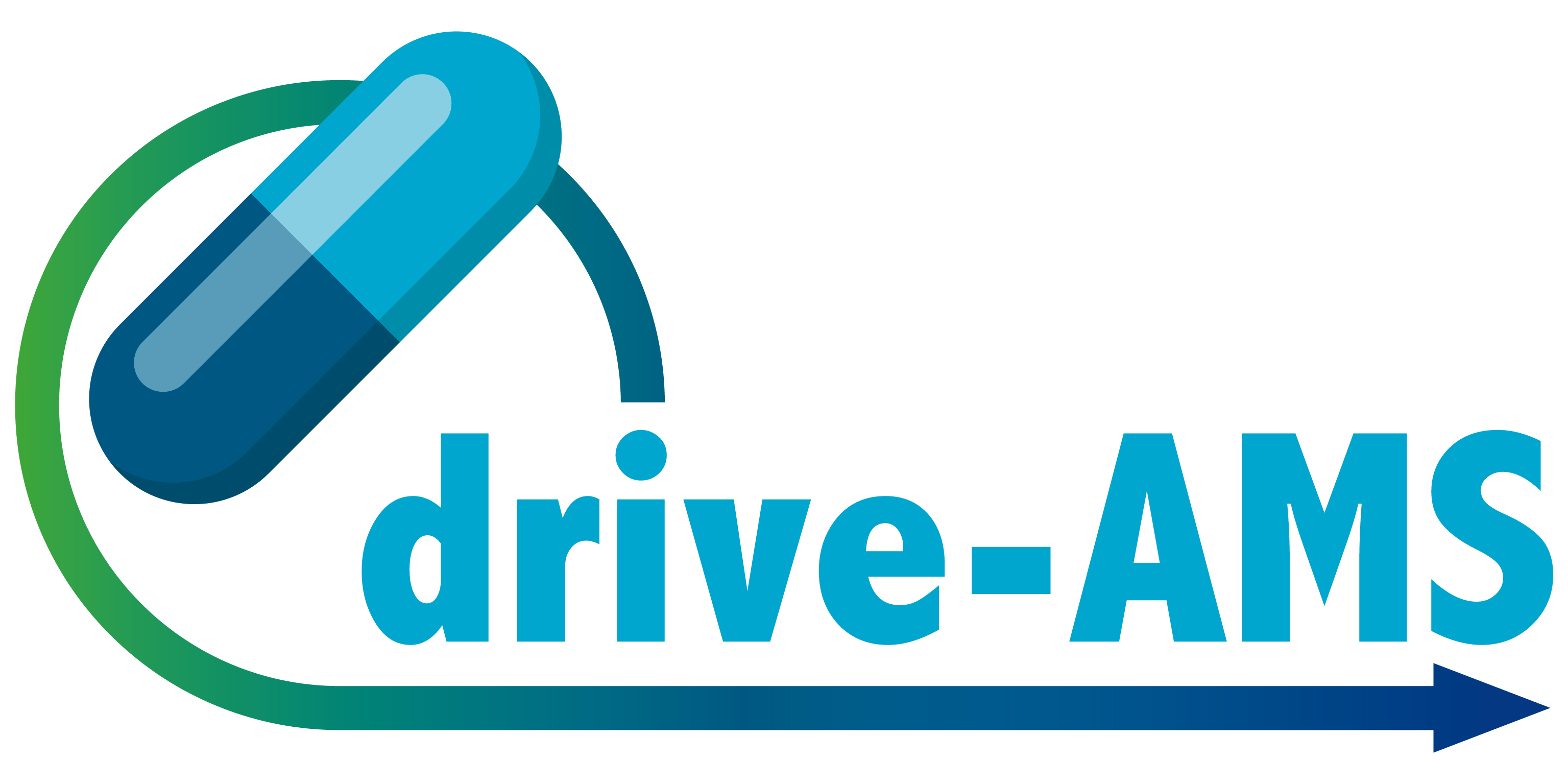UPDATES
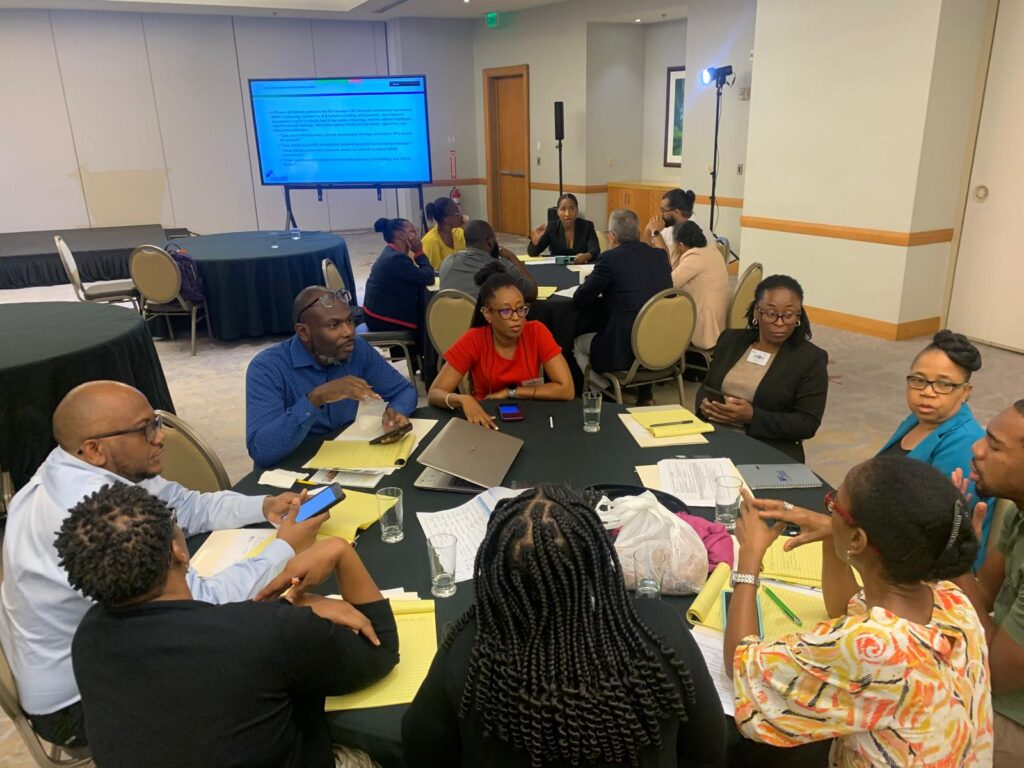
Highlights from the first drive-AMS Masterclass in the Caribbean
From 17 to 19 June 2025, Trinidad and Tobago’s capital Port of Spain became the hub of antimicrobial stewardship (AMS) and infection prevention and control (IPC) education, as healthcare professionals from across the Caribbean gathered for the first-ever drive-AMS Masterclass in the region.
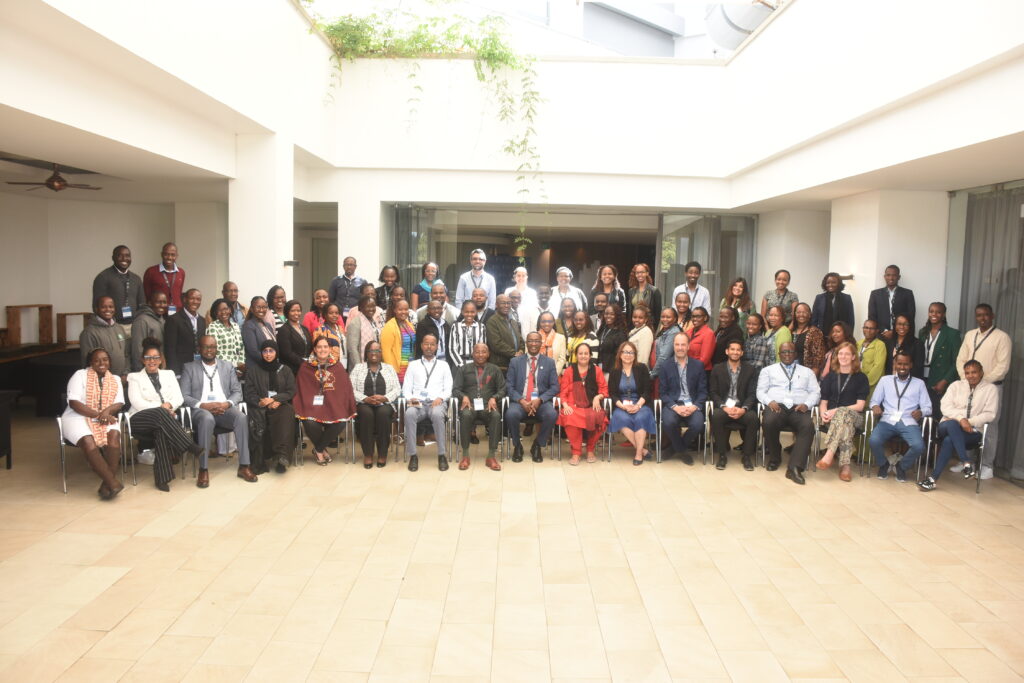
Empowering Antimicrobial Stewardship in Kenya
The drive-AMS team recently had the privilege of conducting a highly interactive and impactful course in Nairobi, Kenya, focused on advancing antimicrobial stewardship (AMS) practices. Organized in collaboration with The International Centre for Antimicrobial Resistance Solutions (ICARS), ReAct Africa Network, Radboudumc, Aga Khan University Hospital Nairobi and other key partners, the course brought together dedicated teams from eight Kenyan centers and one Somalian center, all eager to strengthen their AMS initiatives.
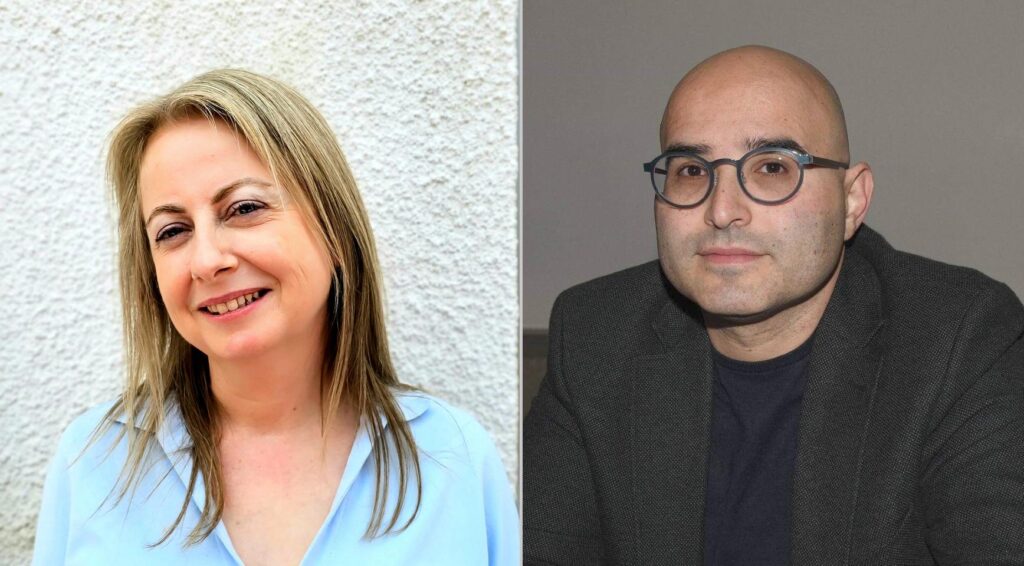
Interview with Dr. Markella Marcou and Dr. Linos Hadjihannas on behalf of the Cyprus Ministry of Health
Antimicrobial resistance knows no borders, and neither does drive-AMS. Following its successful implementation in Greece, Portugal, Romania and Lithuania, the drive-AMS approach is now taking root in Cyprus. With the enthusiastic leadership of Dr. Elisavet Constantinou, Dr. Markella Marcou and Dr. Linos Hadjihannas, the country has taken major steps in implementing antimicrobial stewardship (AMS) at the hospital level. In a first major milestone, eight newly established AMS teams were trained in February 2025 as part of a tailor-made drive-AMS training. In this interview, Dr. Marcou and Dr. Hadjihannas reflect on their motivation, the AMR situation in Cyprus, and their expectations for the future.
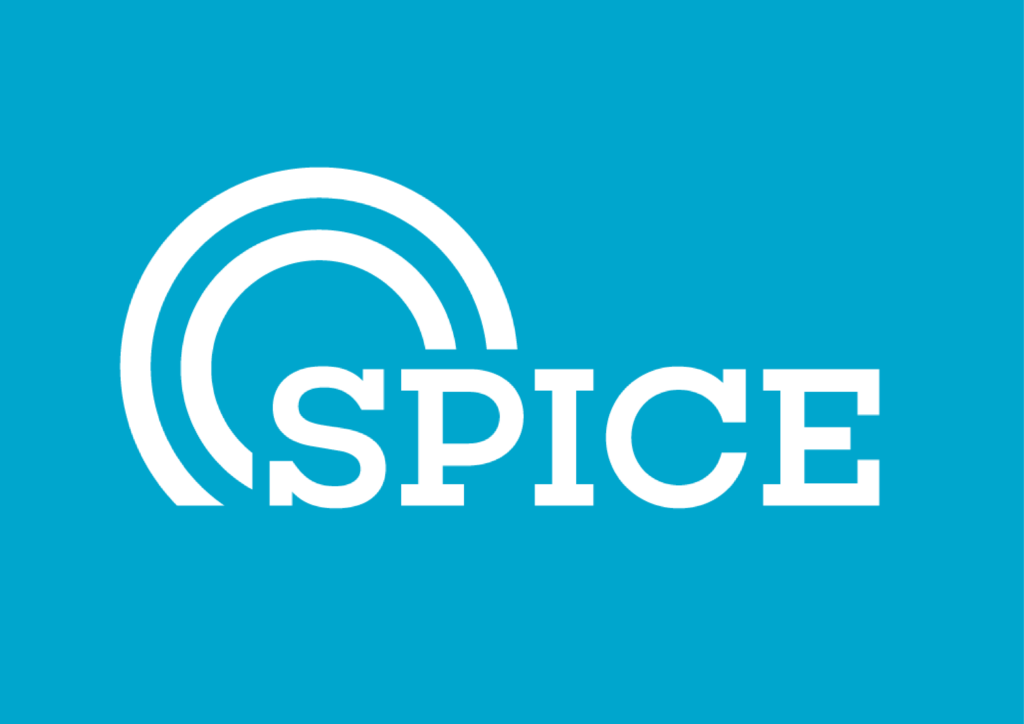
Expanding AMS excellence: SPICE mission in Greece
The SPICE initiative (Specialized Program for Infectious Disease Care Everywhere) has now expanded its expert-led support to Greece. This effort is part of the broader drive-AMS project and aims to empower hospitals in partner countries with tailored, expert-backed AMS consultation services.
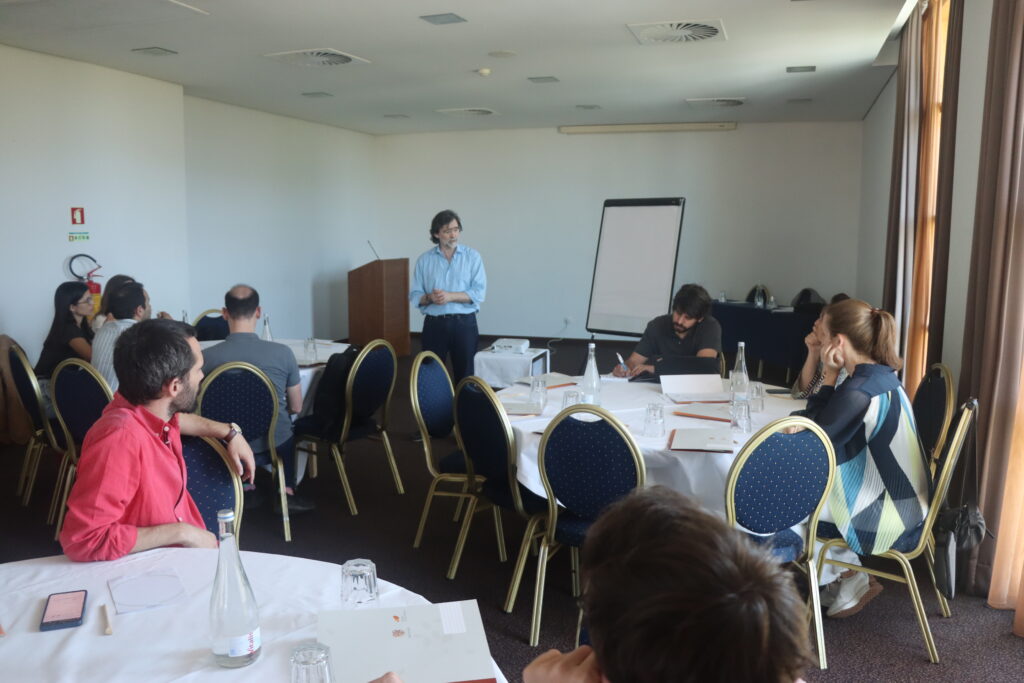
São João organizes drive-AMS leadership and follow-up training events
On May 21st, ULS São João brought together leaders from 16 Portuguese ULS (Local Health Units) for the national leadership meeting of the drive-AMS program—a project focused on improving antimicrobial prescribing practices through behavioral change strategies.
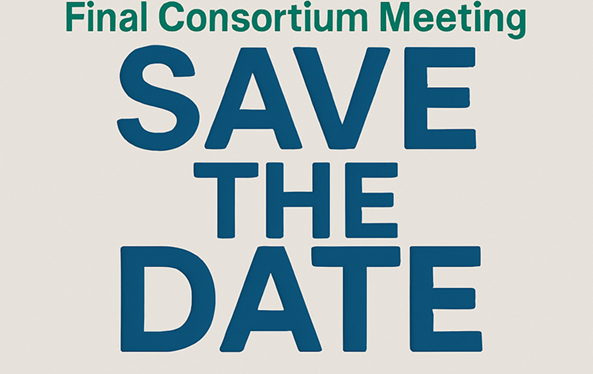
Save the date: Final drive-AMS Consortium meeting
We’re excited to announce the Final Consortium Meeting of the drive-AMS project, taking place from 16–18 October 2025 in Brussels. This three-day event will gather partners, experts, and stakeholders from across Europe to reflect on the achievements of drive-AMS in strengthening antimicrobial stewardship and to shape the future of post-project collaboration.
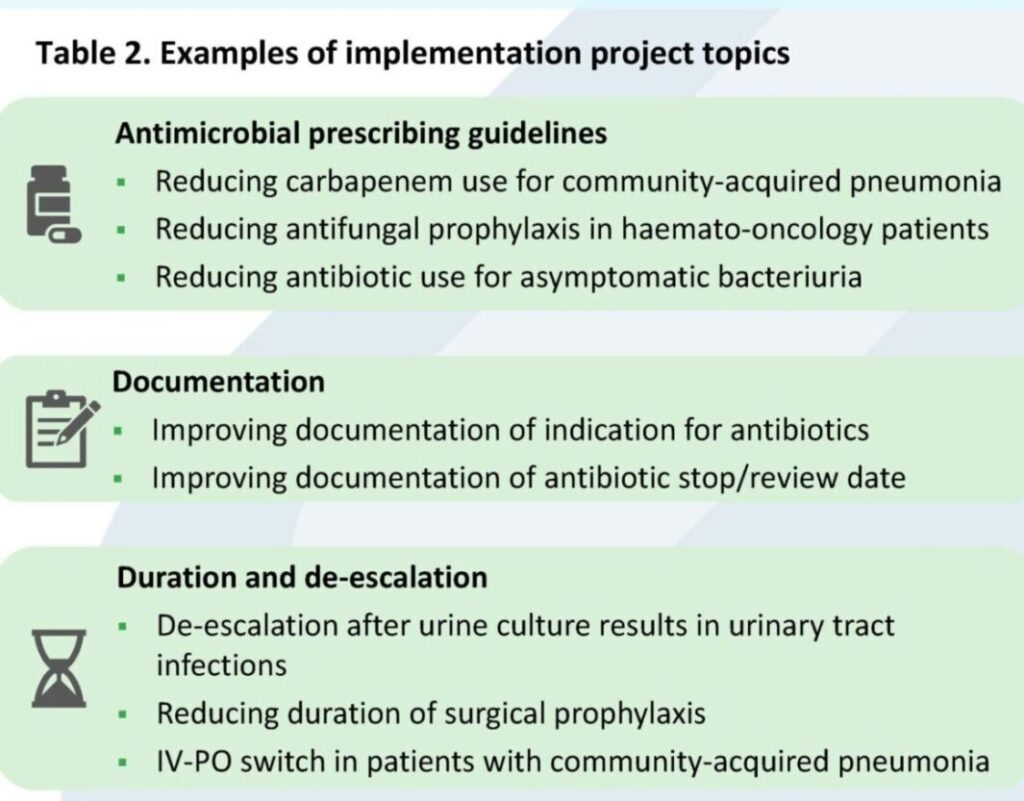
ESCMID Global 2025: drive-AMS poster highlights tangible impact of AMS education across Europe
At the ESCMID Global 2025 conference (Vienna, 11-15 April), the drive-AMS consortium presented key outcomes from its innovative EU-wide antimicrobial stewardship (AMS) project. The poster, titled “Implementation of hospital antimicrobial stewardship in Europe using a data-driven behaviour change approach,” showcased inspiring results from the first two years of the project.
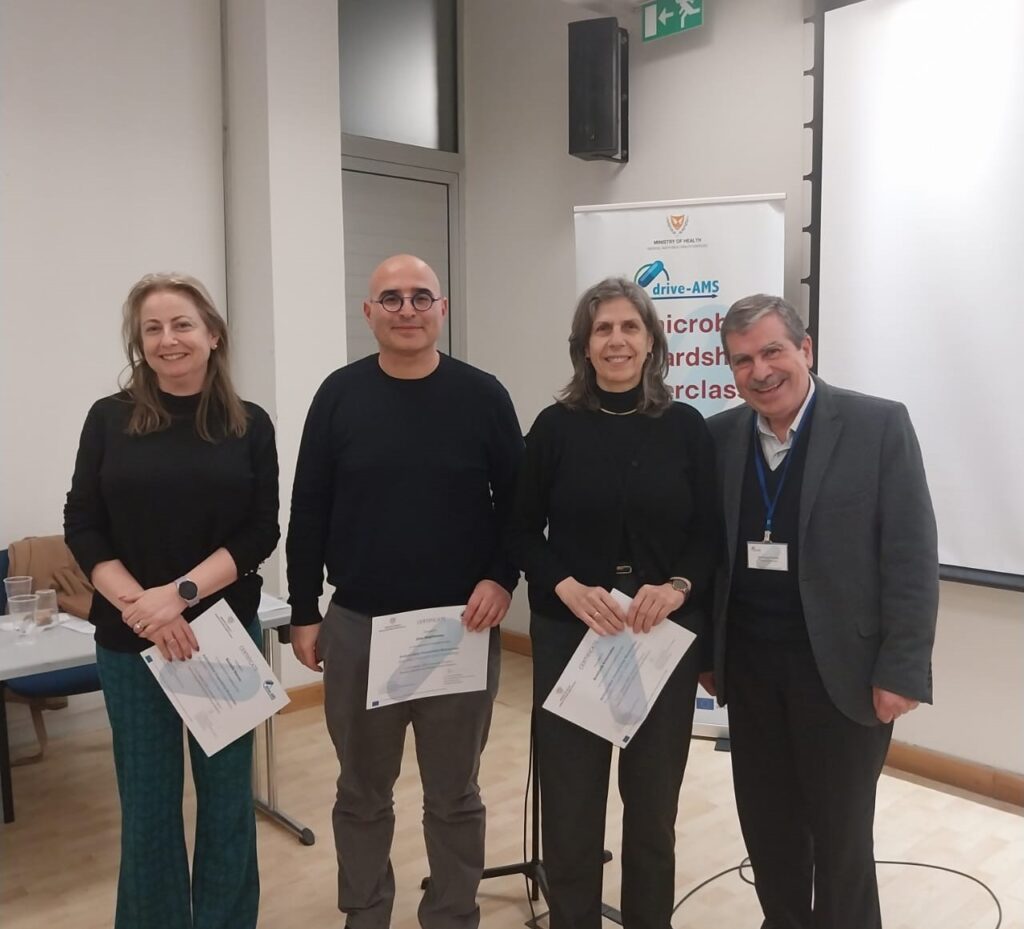
Empowering AMS teams in Cyprus through the drive-AMS Antimicrobial Stewardship course
From 13 to 15 February, a group of 38 healthcare professionals from eight hospitals across Cyprus gathered in Nicosia for an intensive three-day learning experience: the drive-AMS Antimicrobial Stewardship course. Hosted by the Cyprus Ministry of Health and supported by EU-JAMRAI, this event brought the innovative drive-AMS methodology to the Mediterranean, equipping Cypriot hospitals with the knowledge and tools to enhance antimicrobial stewardship.

Addressing AMR together: drive-AMS and the IMAGINE Project
Antimicrobial resistance (AMR) poses a significant challenge to public health, particularly in long-term care facilities (LTCFs) where frail older individuals are highly vulnerable to infections. Excessive and inappropriate use of antibiotics, especially for suspected urinary tract infections (UTIs), contributes to the emergence of multi-resistant bacteria, threatening patient safety.
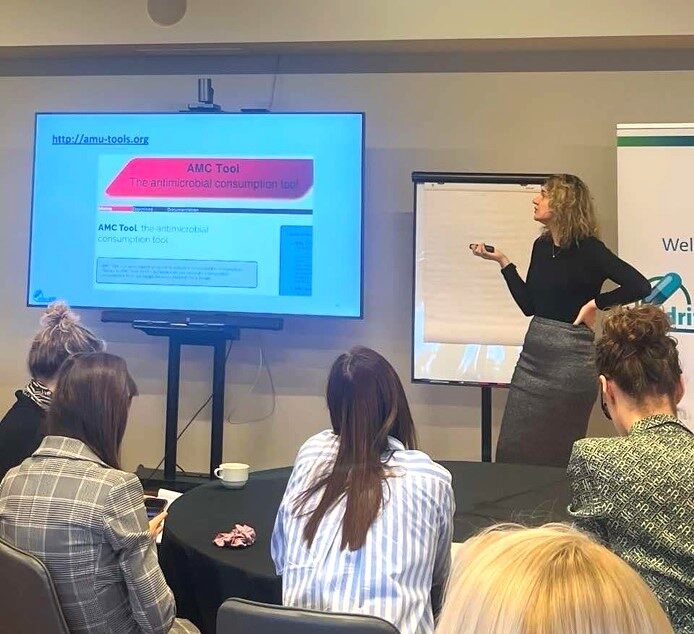
Eglė Karinauskė: the ‘AMR Girl’ driving change in Lithuania
The second drive-AMS country course in Lithuania took place from 29 January to 1 February, bringing together 40 participants, including teams from four new hospitals and one new team from the University Hospital Pediatric Division. This course provided a vital platform for expanding AMS initiatives in Lithuania. Among the attendees was Eglė Karinauskė, an inspiring clinical pharmacologist dedicated to rational antibiotic prescribing. Known as the ‘AMR girl’ among her colleagues, Eglė is a passionate advocate for AMS, and in this interview, she shares her insights, experiences, and the impact of drive-AMS on her work.
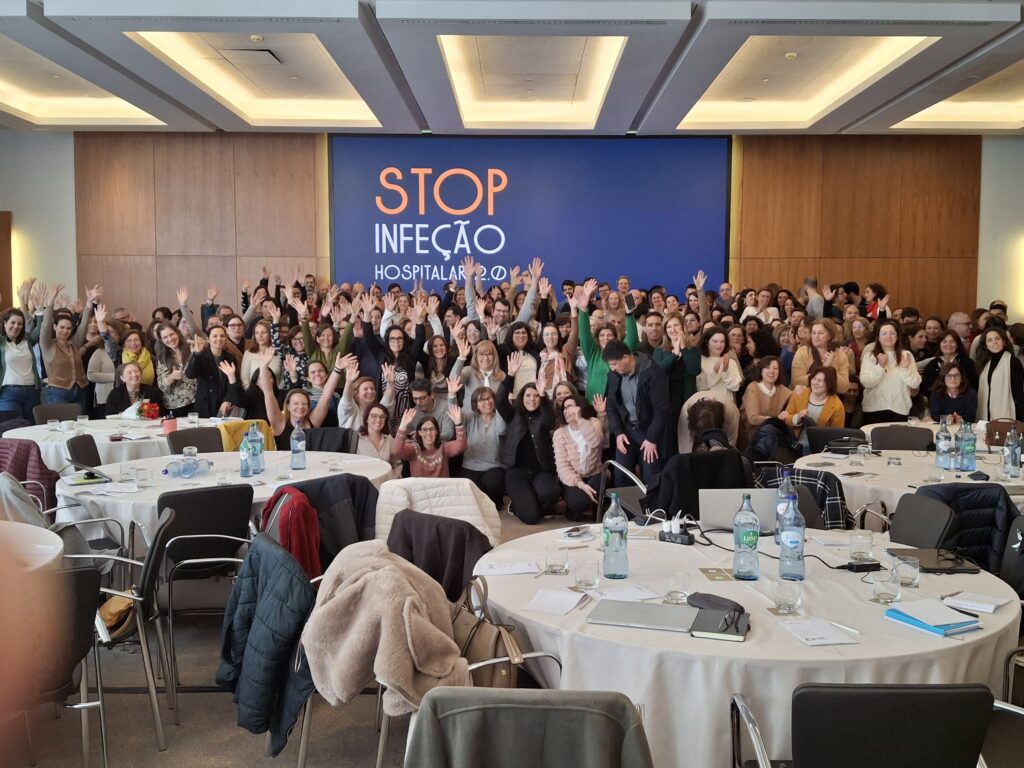
STOP-Hospital Infection: 350 experts unite to combat hospital infections in Portugal
STOP-Hospital Infection is a quality improvement program developed by the Portuguese Health Priority Program on Prevention of Infection and Antimicrobial Resistance, seeded in the Directorate General of Health, in partnership with the Gulbenkian Foundation and with the support of the Institute of Healthcare Improvement.
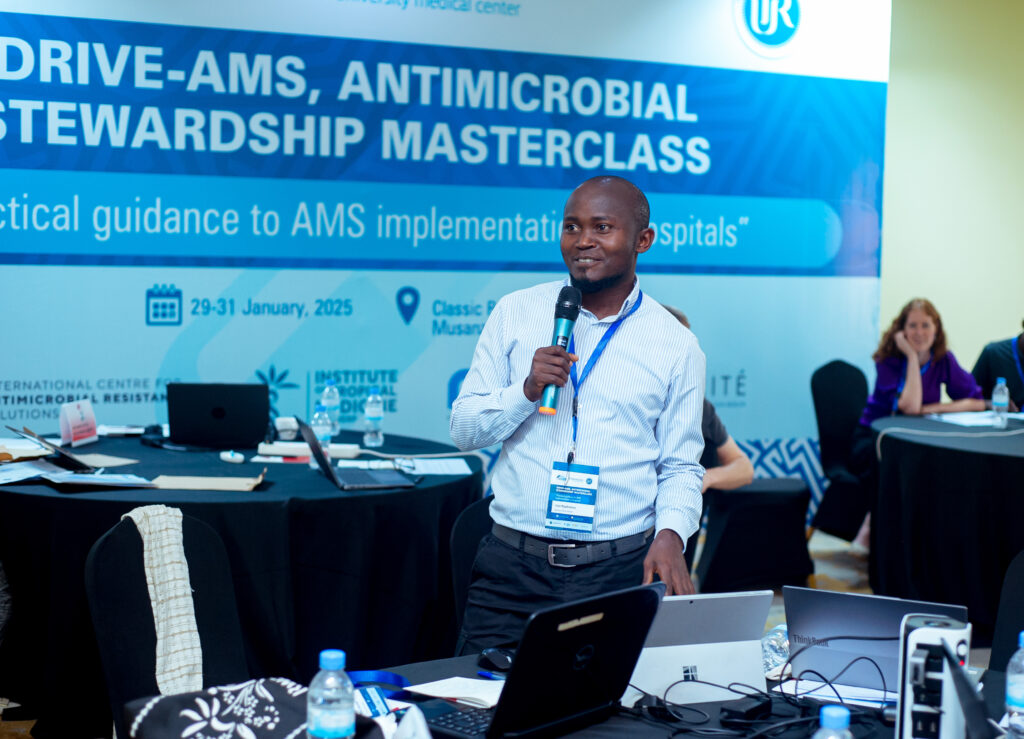
drive-AMS Masterclass equips Rwandan teams for better antibiotic stewardship
From January 29 -31, the second drive-AMS Masterclass for Rwandan hospitals took place in Kigali, bringing together teams from across the country for an intensive three-day training.
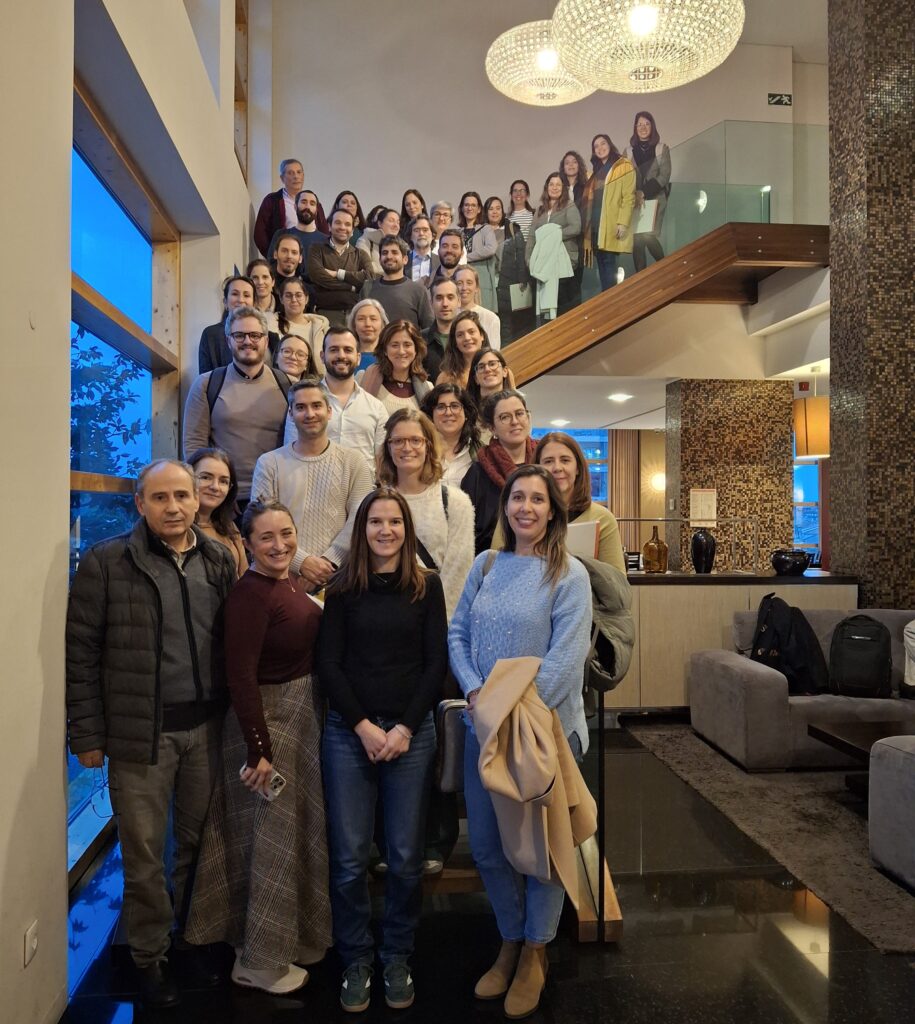
drive-AMS course supports antibiotic prescription practices in 8 new Portuguese hospitals
The third edition of the Portuguese drive-AMS training course recently took place, promoting strategies to support the prescription of antibiotics in eight national hospitals. It’s in line with the objective of the drive-AMS project to create measures in partner hospitals to combat antimicrobial resistance, through promoting behavioural change in prescribing doctors.
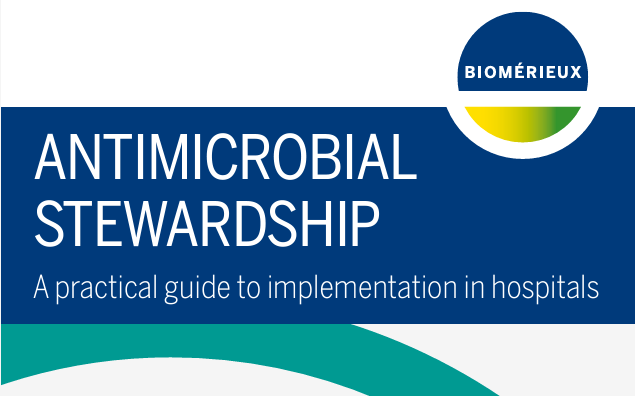
Unlocking the power of Antimicrobial Stewardship: a practical guide for hospitals
Antimicrobial resistance (AMR) is one of the most pressing health challenges of our time, threatening to undermine decades of medical progress. In response, the drive-AMS team at Radboud University Medical Center, in close collaboration with bioMérieux, has brought together its extensive experience in a comprehensive guide titled "Antimicrobial Stewardship: A Practical Guide to Implementation in Hospitals."

Global commitments for local action: UN General Assembly and Jeddah Ministerial Meeting on AMR
The global fight against Antimicrobial Resistance (AMR) took center stage on 26 September 2024, at the United Nations General Assembly High-Level Meeting on AMR (UN Headquarters, New York, USA). This silent pandemic brought world leaders together for the second time to confront AMR and laid out a roadmap of political commitments.
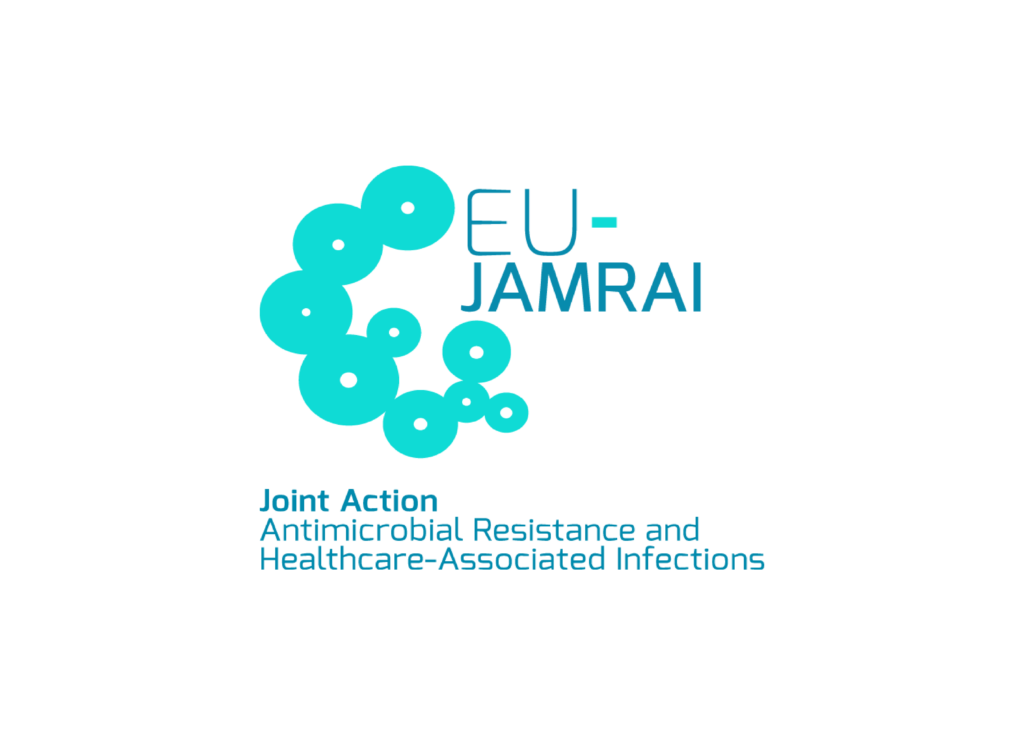
drive-AMS and EU-JAMRAI2: joining forces to tackle AMR
drive-AMS and EU-JAMRAI2, the second phase of the European Joint Action on Antimicrobial Resistance (AMR) and Healthcare-Associated Infections, are aligning their efforts, recognizing that both initiatives share crucial goals. EU-JAMRAI2 is dedicated to assisting EU Member States in implementing targeted actions against AMR, with the ultimate goal of safeguarding public health on the continent.

SPICE expert support: unique opportunity for improving implementation of AMS efforts
As part of drive-AMS, the team at Radboud University Medical Center in Nijmegen, the Netherlands, is expanding their SPICE Expert Registry to Greece, Lithuania, Romania and Portugal. SPICE stands for Specialized Programme for Infectious Disease Care Everywhere
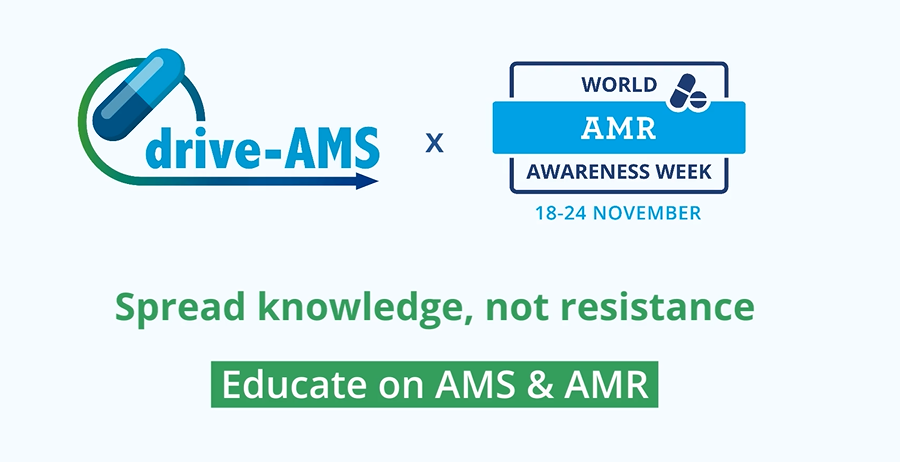
World Antibiotic Awareness Week 2024
From 18 to 24 November, join us and the global community in the WHO World Antibiotic Awareness Week (WAAW). This annual campaign raises awareness about AMR and promotes best practices to reduce the emergence and spread of drug-resistant infections.
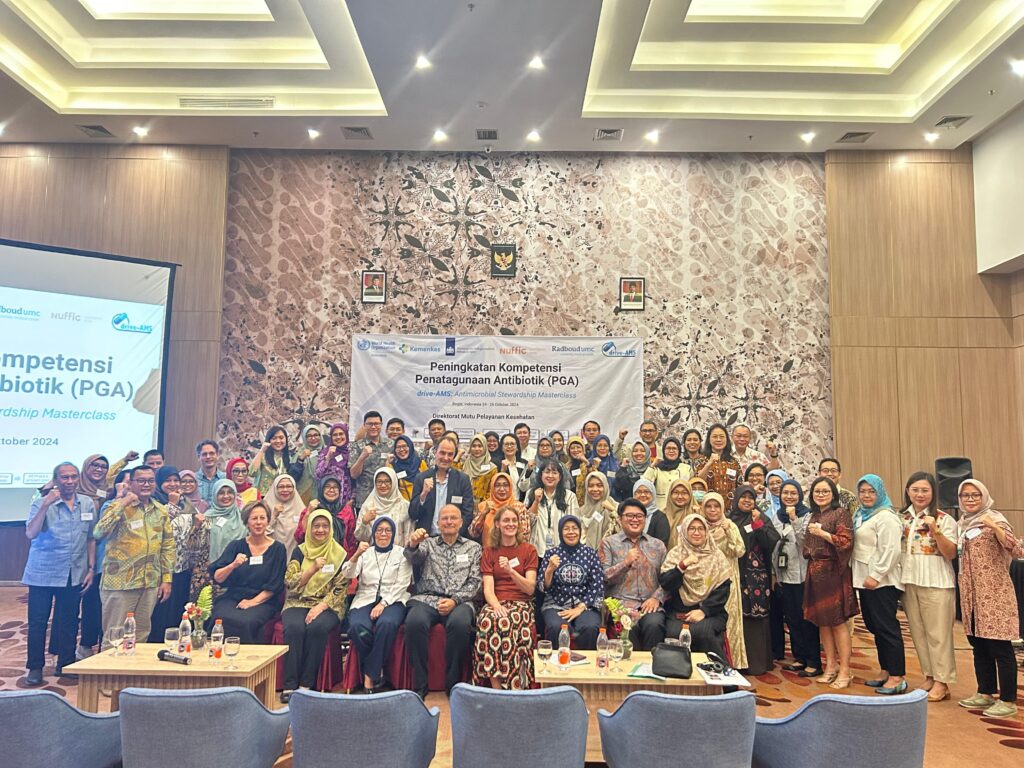
drive-AMS expands to Indonesia
The drive-AMS methodology has successfully expanded beyond Europe, reaching both Africa and Asia. After having been implemented in Tanzania, drive-AMS’s distinctive approach, which combines antimicrobial use measurement, implementation support, and behavioural change, is now also active in Indonesia.

Driving Change: Dr. Birutė Zablockienė’s Role in Antimicrobial Stewardship in Lithuania
Dr. Birutė Zablockienė is part of the core drive-AMS team implementing antimicrobial stewardship (AMS) in Lithuania. In this interview, she shares insights into her work on combating antimicrobial resistance (AMR) and the challenges her team faces in ensuring appropriate antimicrobial use across multiple hospital departments.
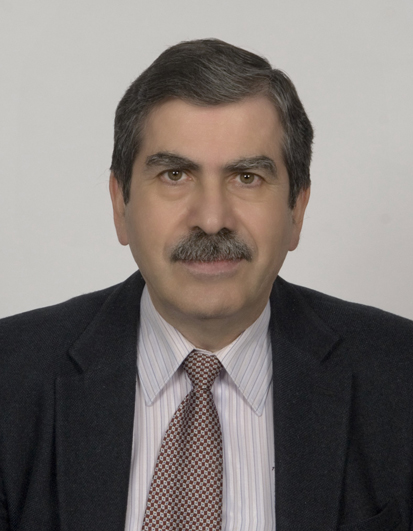
Interview with Emmanuel Roilides, drive-AMS country lead for Greece
In this interview, Professor Emmanuel Roilides, the country lead for the drive-AMS project in Greece, discusses his commitment to combating antimicrobial resistance. He shares the significant progress made by the Greek drive-AMS network in promoting antibiotic stewardship across hospitals, highlighting the challenges and successes encountered along the way. Professor Roilides also outlines the future goals of expanding the network and gaining broader state recognition to enhance the fight against resistant infections.
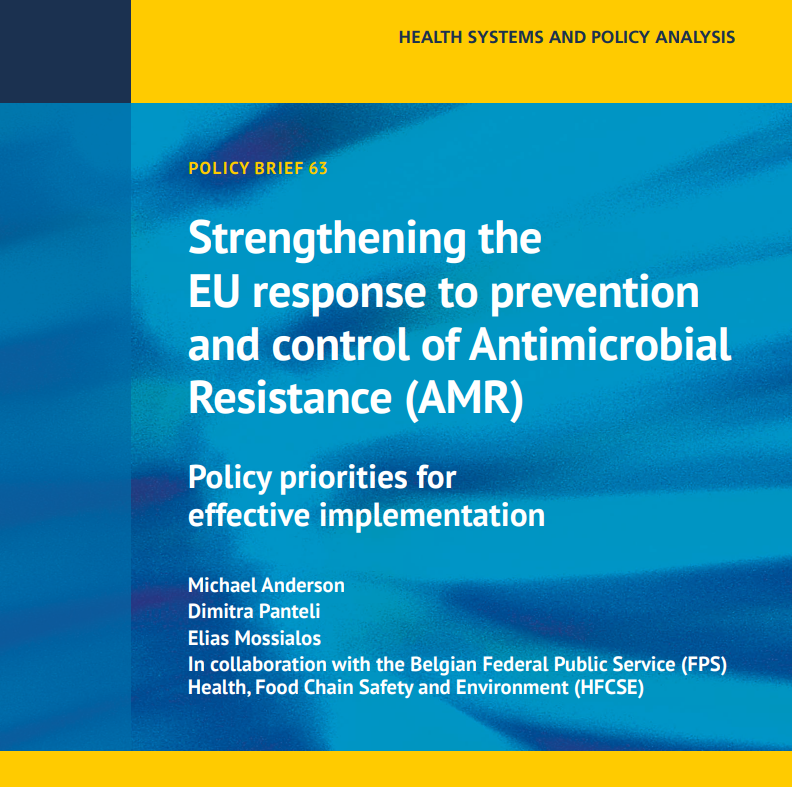
drive-AMS recognized in WHO Policy Brief for combatting AMR
We are proud to announce that drive-AMS has been highlighted in the recent policy brief by the European Observatory on Health Systems and Policies, under the section “Boosting implementation of effective strategies to combat AMR.”
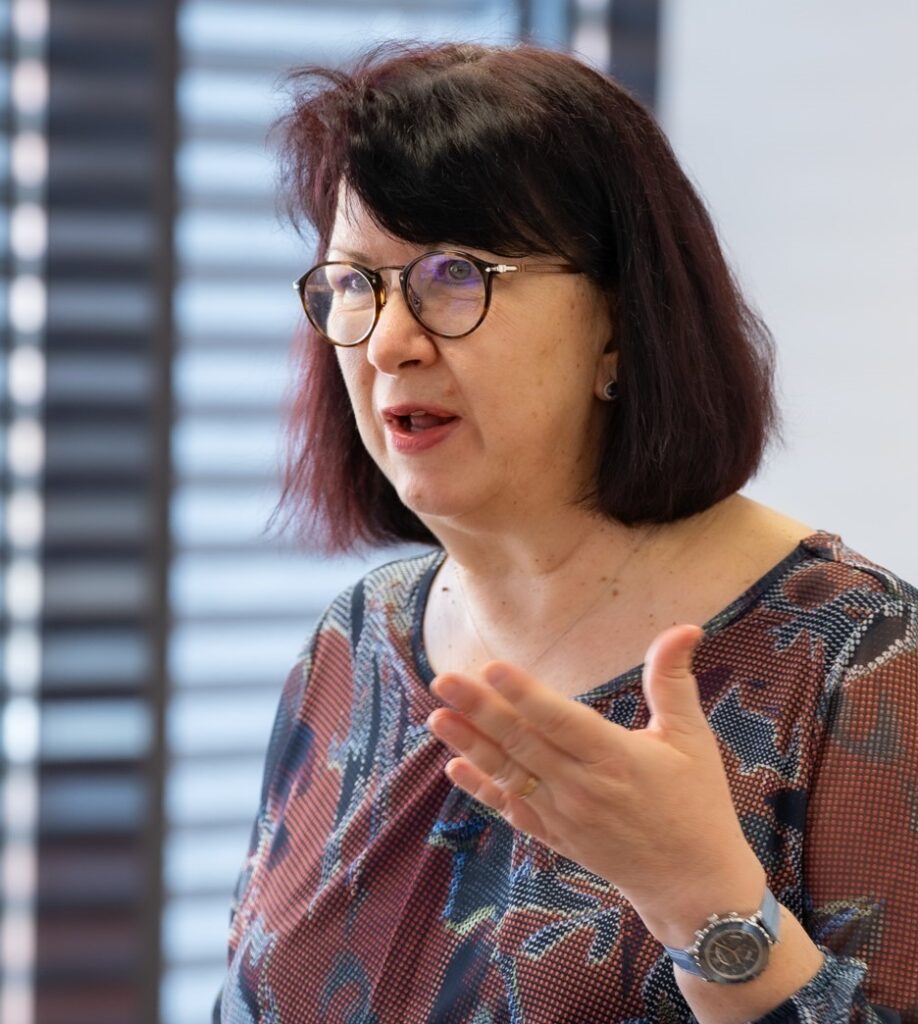
Interview with Romanian country lead Prof. Mihaela Lupse
In this interview, Mihaela Lupse, professor in infectious diseases and lead of the Romanian drive-AMS network, sheds light on the situation in her country. She elaborates on the ongoing efforts in fighting AMR and establishing the project in Romania.

AMR challenges in Portuguese hospitals – a story from the field by Dr. Raquel Duro
In this interview, Dr. Raquel Duro, member of the Portuguese drive-AMS team, elaborates on her role within the project, the AMS interventions in her hospital and how AMR has affected patients.
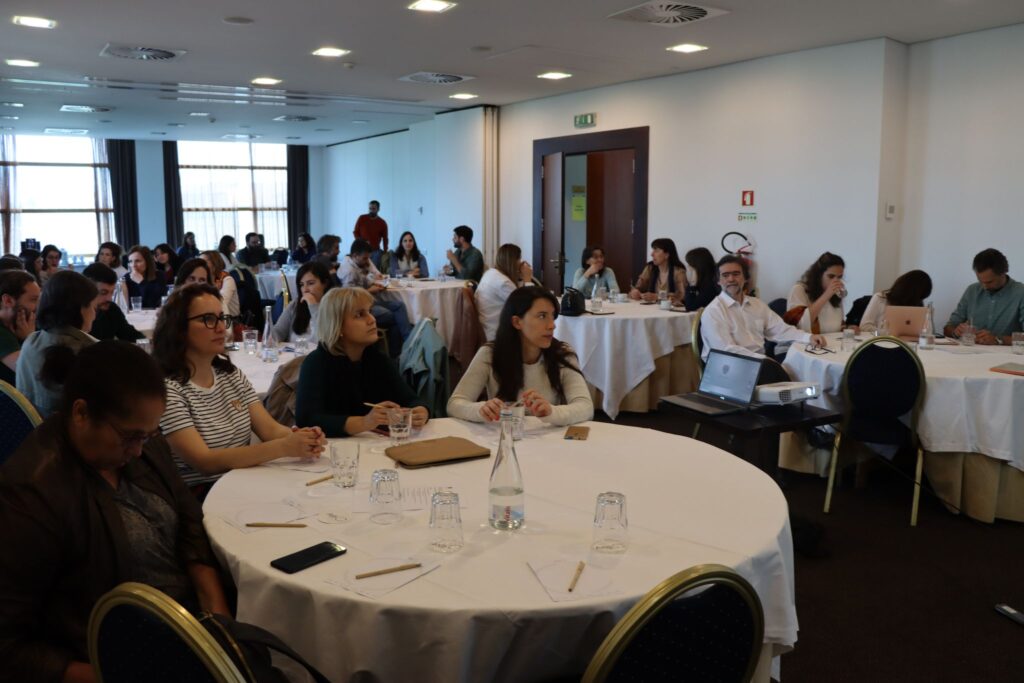
Portuguese drive-AMS network organised second part of in-country course
The second part of the course dedicated to antimicrobial stewardship, integrated into the European drive-AMS project, recently took place.
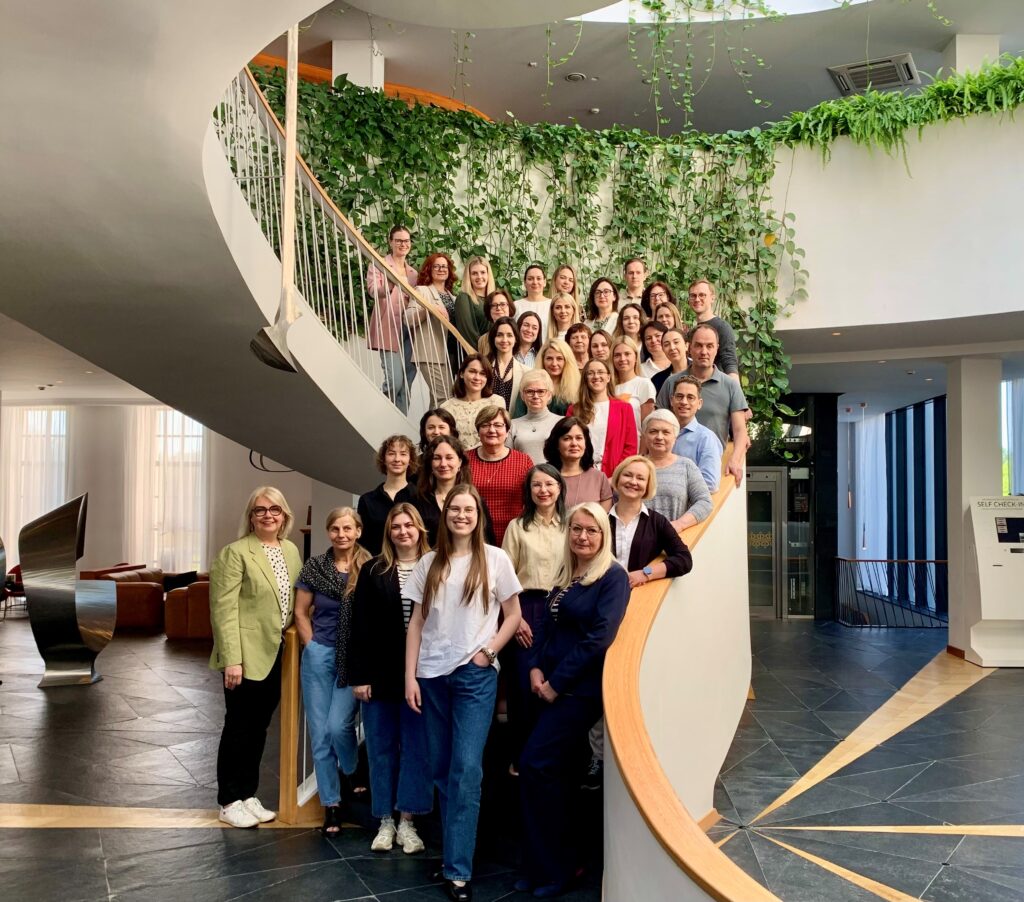
Insights into the final in-country course in Lithuania
It’s the end of our drive-AMS in-country trainings! From 15 until 18 May, the final course took place in Birštonas, Lithuania, organised by dr. Rolanda Valinteliene from the Institute of Hygiene in Vilnius and her team. The four days included presentations and workshops providing deeper insights into antimicrobial stewardship: basic requirements, objectives, prescribing patterns in Europe, quantity & quality of antimicrobial use, determinants & barriers, behavioural change and more.
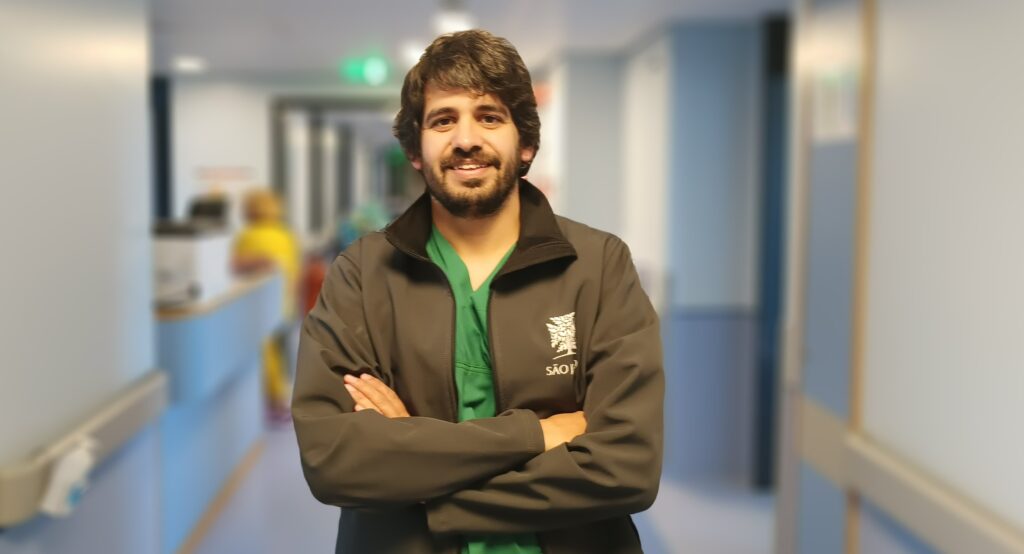
Portuguese doctor awarded with project to improve antimicrobial stewardship within the scope of drive-AMS
Dr. Francisco Almeida from the Infection Prevention and Control and Antimicrobial Resistance Unit (UPCIRA) of São João Hospital, in Porto, Portugal, was awarded with the first prize of the AMS Certificate Programme 2022-2024 from ESCMID. He received the award for a project within the scope of drive-AMS, an antimicrobial stewardship project, with European funding, coordinated in Portugal by São João Hospital and involving 7 more national health units.
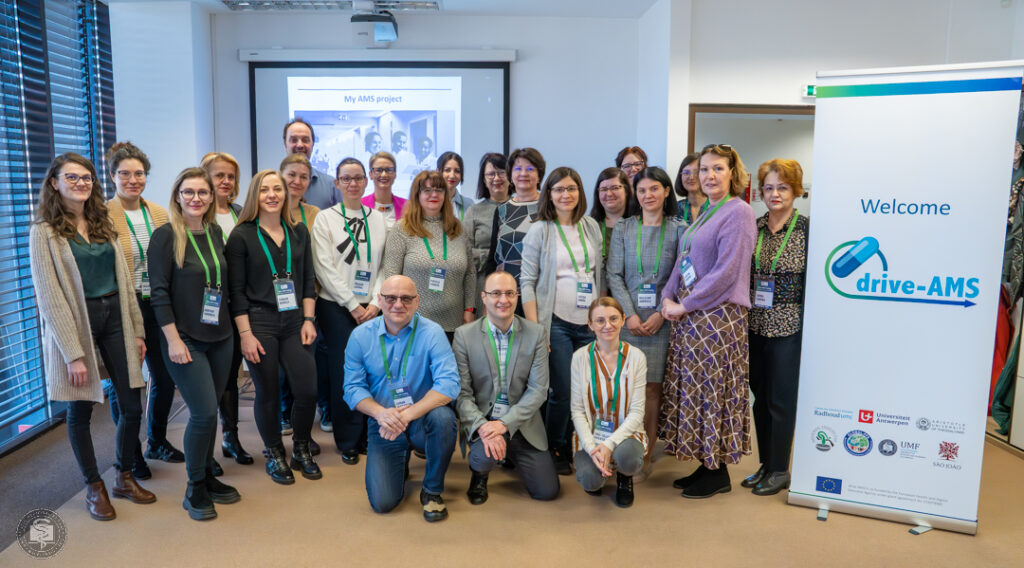
Driving Antimicrobial Stewardship in Romania: country course recap
From 18 to 21 March, the Romanian drive-AMS team reached a critical milestone as it organized its own in-country training course. Under the leadership of Prof. Dr. Mihaele Lupse, representatives from 8 Romanian hospitals assembled in Cluj for four days of presentations and discussions on all aspects of effective stewardship programs to optimize antibiotic use.
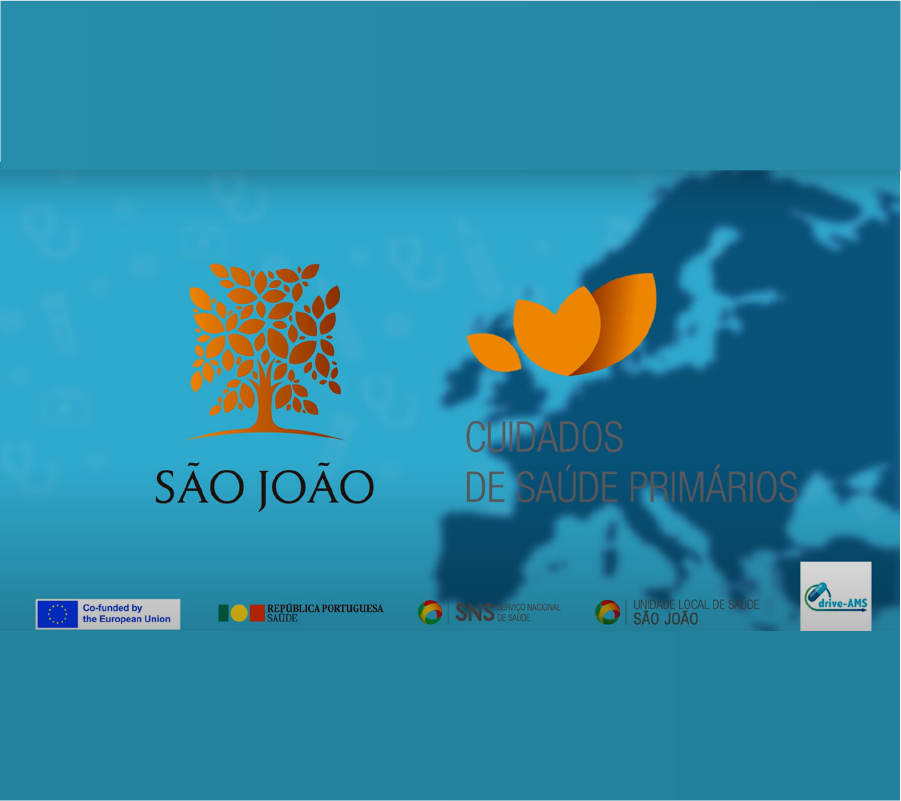
drive-AMS selected to join the Portuguese Sustainable Health Pact
The European drive-AMS project, which São João leads in Portugal, was selected to integrate the 1st phase of the Sustainable Health Pact (PaSSus) 2030, within the scope of the National Health Plan 2030 (PNS), recently launched and promoted by the portuguese General Directorate for the Health (DGS).
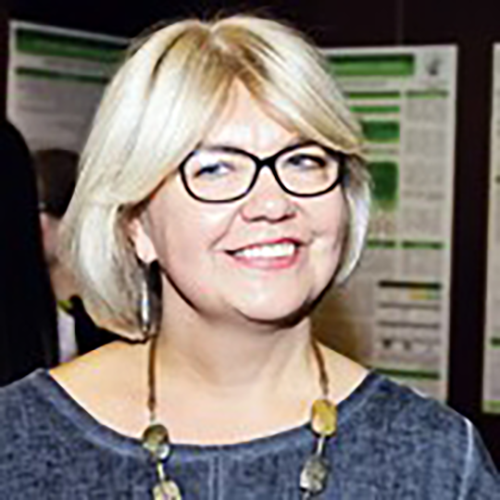
Country lead interview with Dr. Rolanda Valinteliene
In this insightful interview, Dr. Rolanda Valinteliene, Head of the Public Health Technology Centre at the Institute of Hygiene in Vilnius, shares her experiences and challenges in leading efforts against antimicrobial resistance in Lithuania.
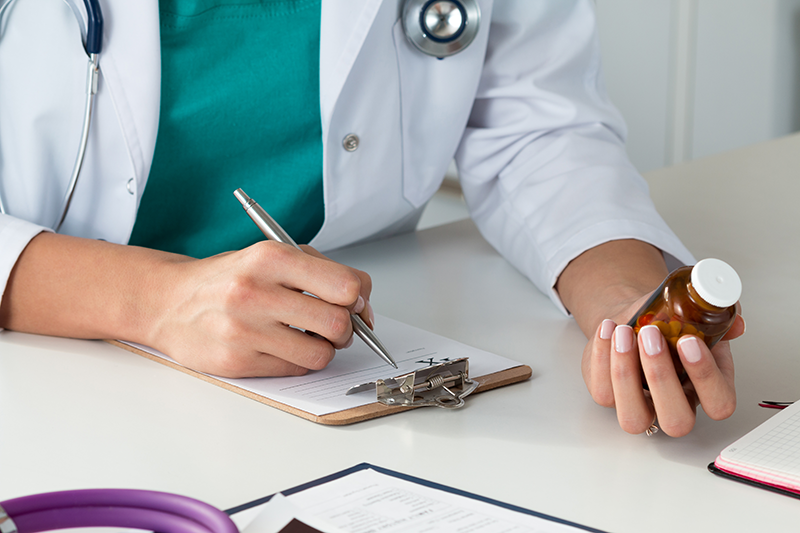
Combating AMR in Romania: a story from the field with Roxana Dobrota
In this interview Roxana Dobrota, a member of the Romanian drive-AMS team, shares her insights into her role as clinical pharmacist, the situation around AMR in her country and how this is handled in her hospital.
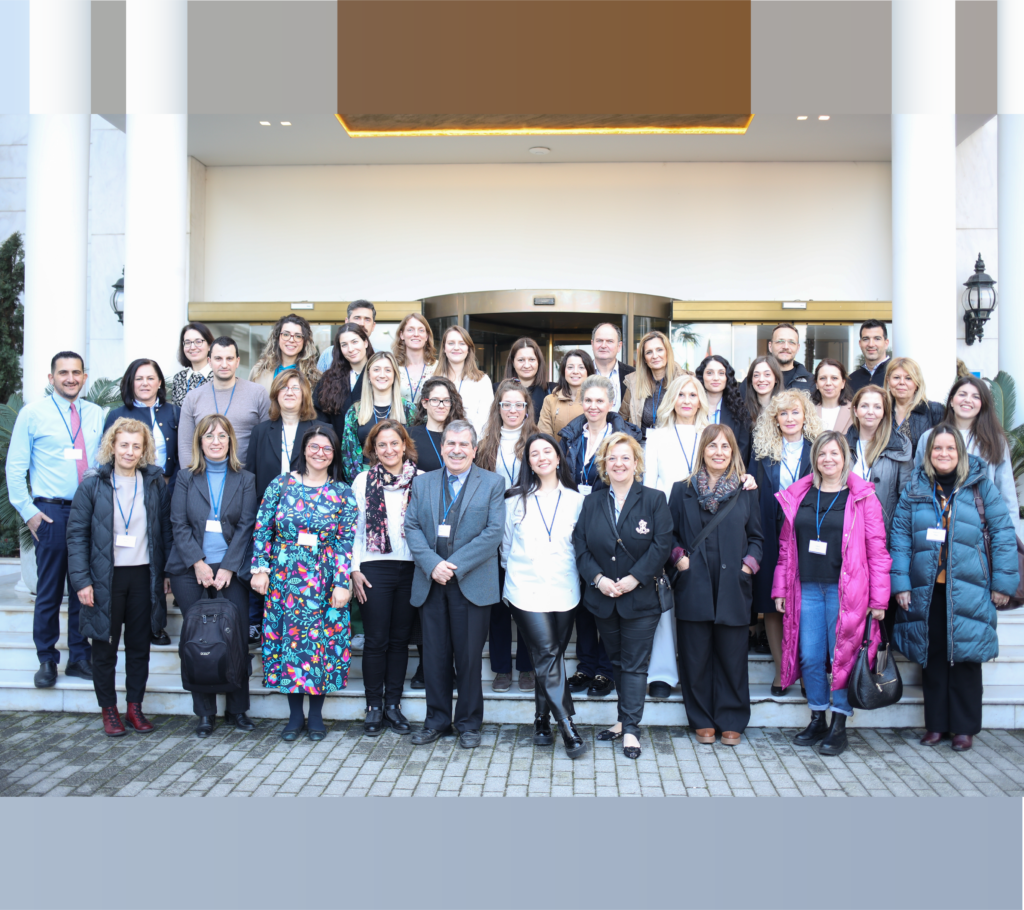
Empowering AMS: Insights from the Greek drive-AMS Course
Another successful in-country training! The Greek team, led by Prof. Dr. Emmanuel Roilides from the General Hospital of Thessaloniki, organised their drive-AMS course from 22 to 24 February. Around 40 participants from 8 different hospitals took part in the training, including infectious diseases specialists, pharmacists, nurses, microbiologists and paediatricians.
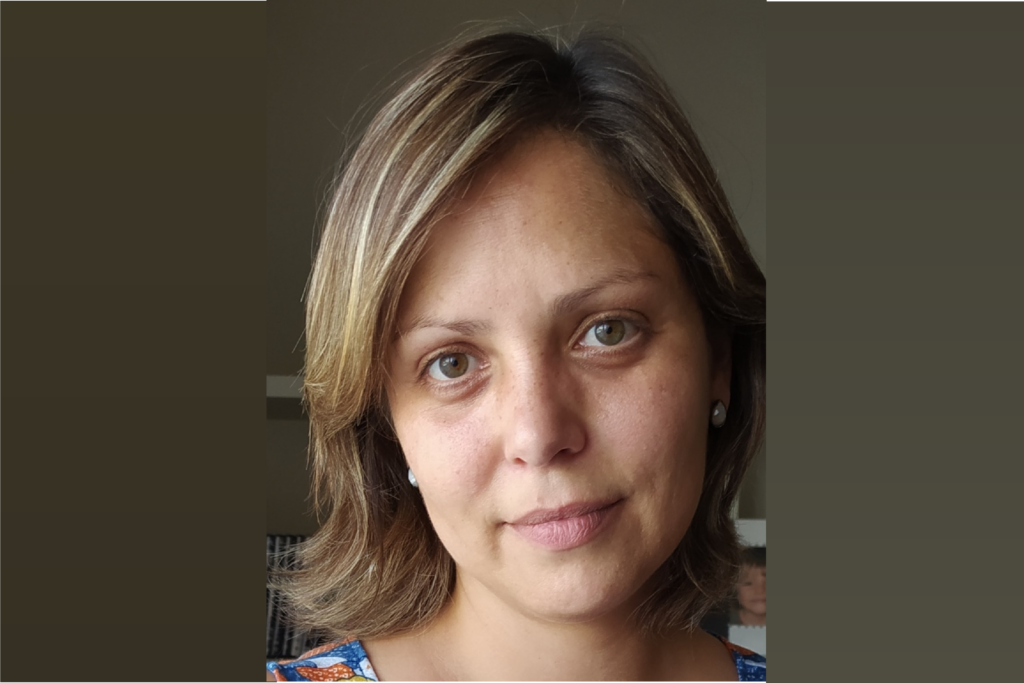
Behavioural change: psychologist Ana Silva Reis explains
Meet Ana Reis, the health psychologist who joined the Portuguese drive-AMS team. Ana elaborates on her approach to behavioural change, a key pillar of effective antimicrobial stewardship programmes.
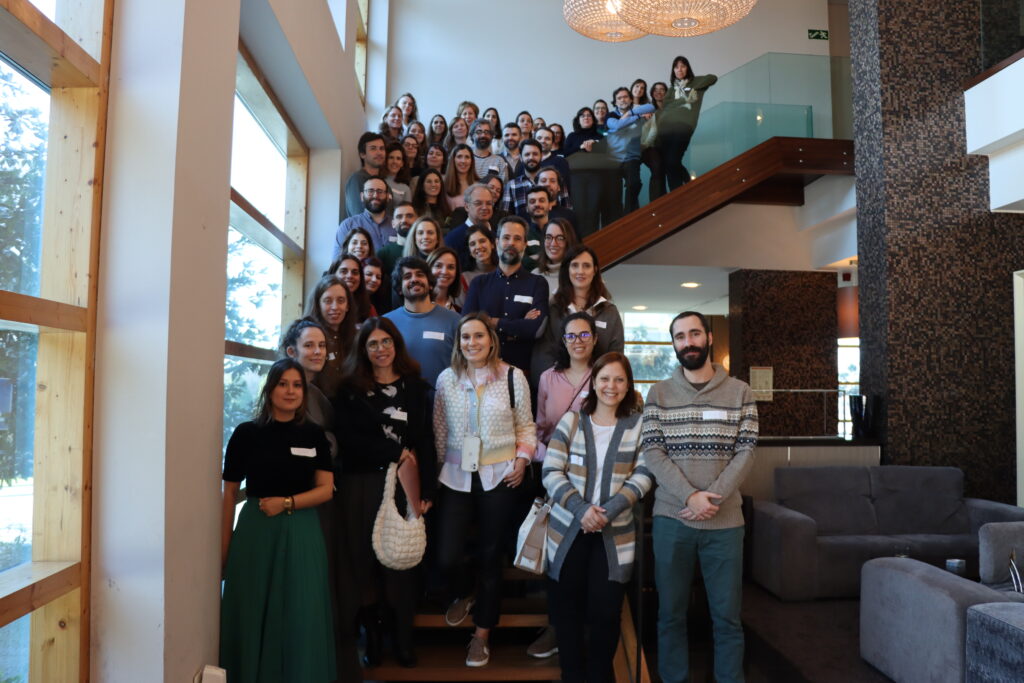
Portugal in-country course recap
From 24 to 26 January 2024, Portugal hosted the first of four in-country trainings on the implementation of antimicrobial stewardship (AMS) in hospitals.This successful 3-days course was organised by Dr. José Artur Paiva from the São João University Hospital and 14 faculty members from Portugal, Belgium and the Netherlands. Central throughout this training was inserting implementation science in hospital AMS programs.
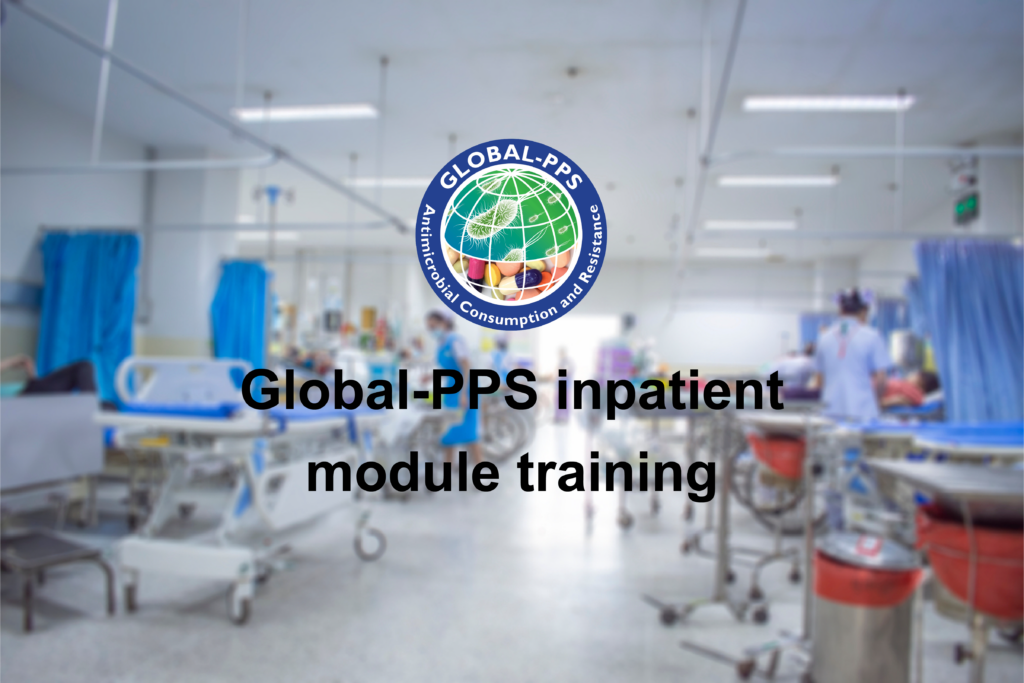
Global-PPS inpatient online training
Global-PPS is organising an online training on Thursday 18 January, which will be focussed on their inpatient methodology.
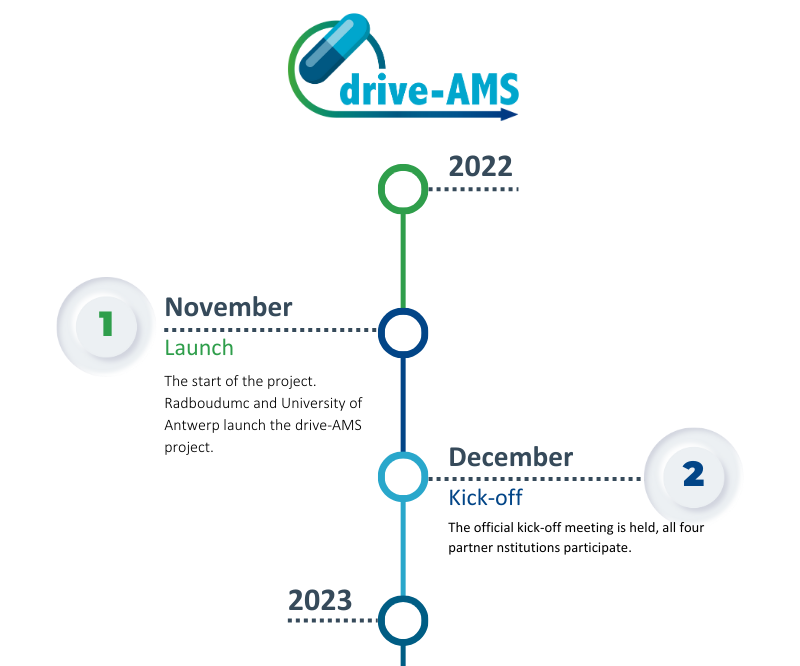
One year of drive-AMS
One year ago, the drive-AMS project was established. In this brief overview, we present the most significant milestones that have been reached in the course of its first year.
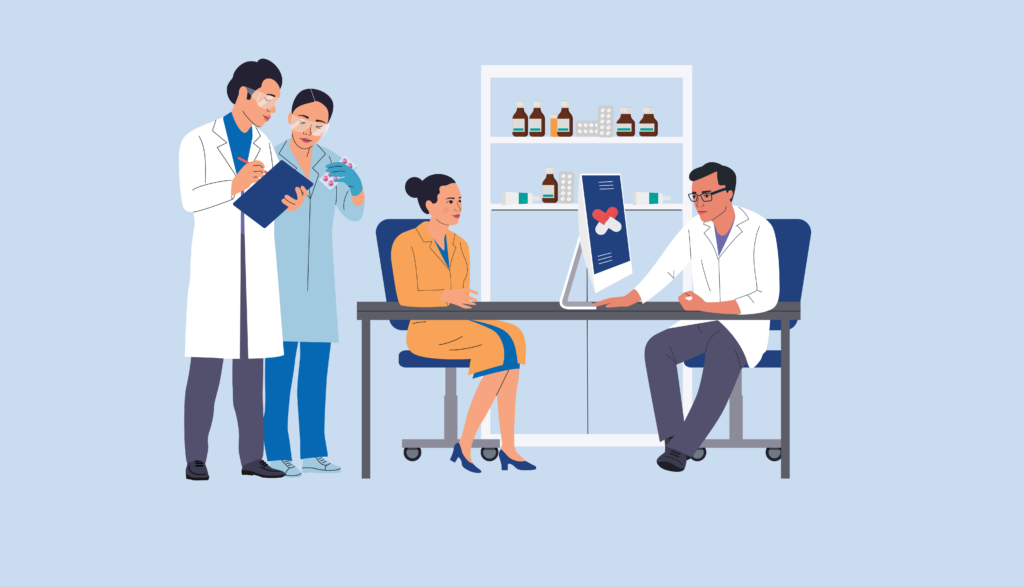
Tackling antimicrobial resistance in Greece: Dr. Elias Iosifidis explains
In this interview, Dr. Elias Iosifidis, member of the drive-AMS team in Greece, sheds his light on the daily challenges faced, emphasizing the importance of collaborative efforts in the battle against AMR.
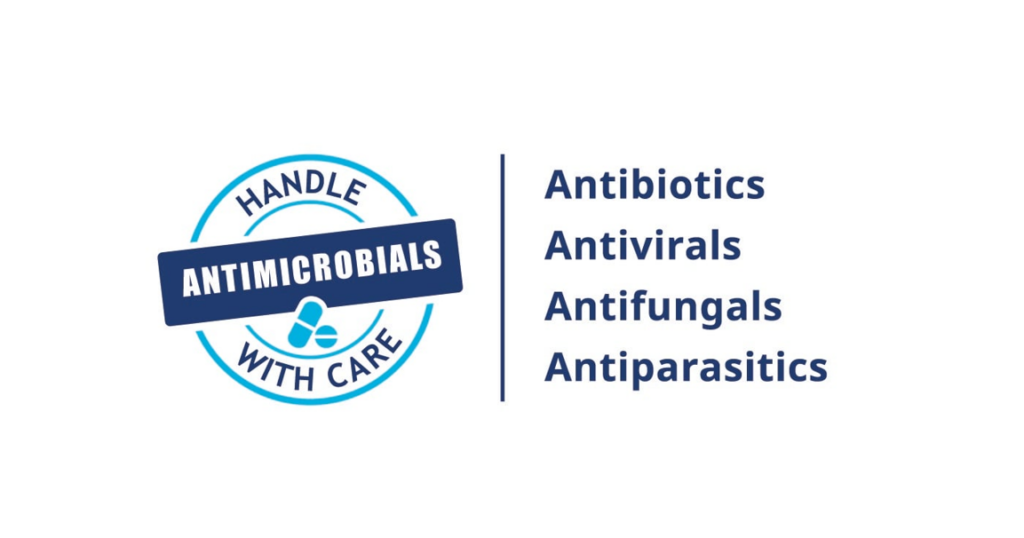
drive-AMS WAAW 2023
World Antimicrobial Awareness Week (WAAW) is celebrated annually from 18 to 24 November. Dedicated to raising awareness about global antimicrobial resistance (AMR) and promoting best practices, this event provides an excellent opportunity to showcase drive-AMS's unique approach to enhancing appropriate antimicrobial prescribing through the implementation of sustainable antimicrobial stewardship programs.
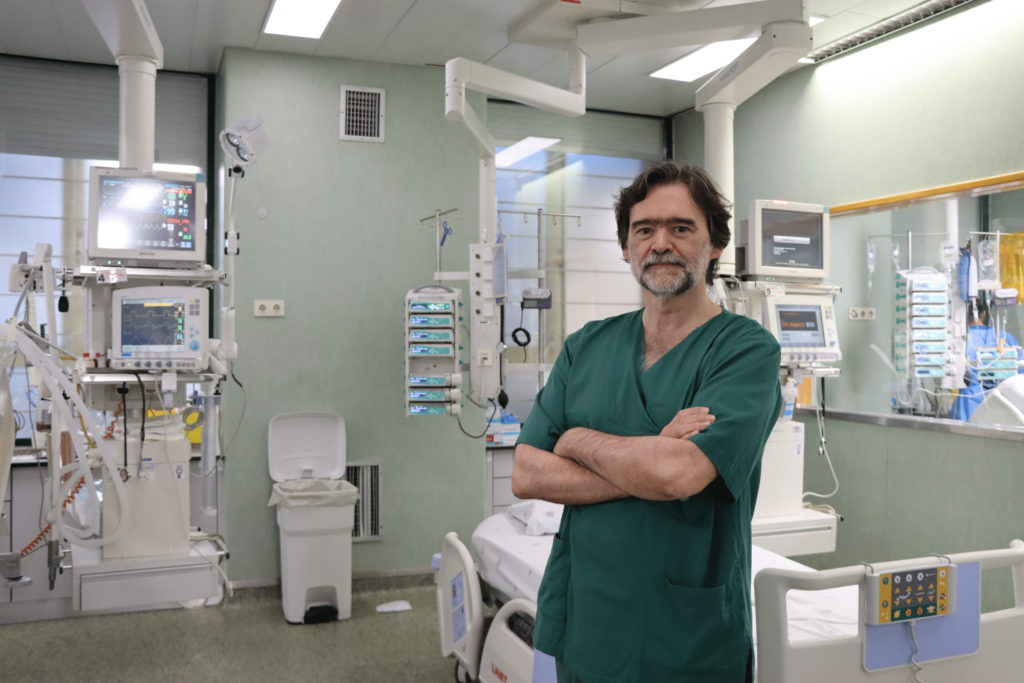
Interview with Dr. Paiva, drive-AMS lead in Portugal
Dr. José-Artur Paiva is director of the Intensive Care Medicine Department at the Centro Hospitalar Universitário Sao Joao in Portugal. In this interview, he covers critical insights into the fight against antimicrobial resistance and the instrumental role of the drive-AMS project. Dr. Paiva's experiences and future plans underscore the importance of collaborative efforts and proactive strategies in combating this global health challenge.
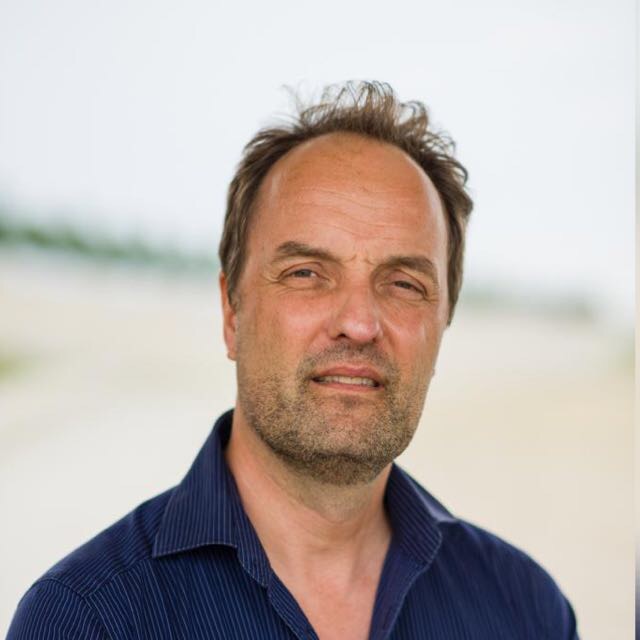
Interview with drive-AMS project lead Jeroen Schouten
Read our interview with Dr. Jeroen Schouten, intensivist at Radboud University Medical Center and project lead of drive-AMS. Jeroen discusses the work that has been done during the first months of the project, essential lessons learned and his future goals for drive-AMS.
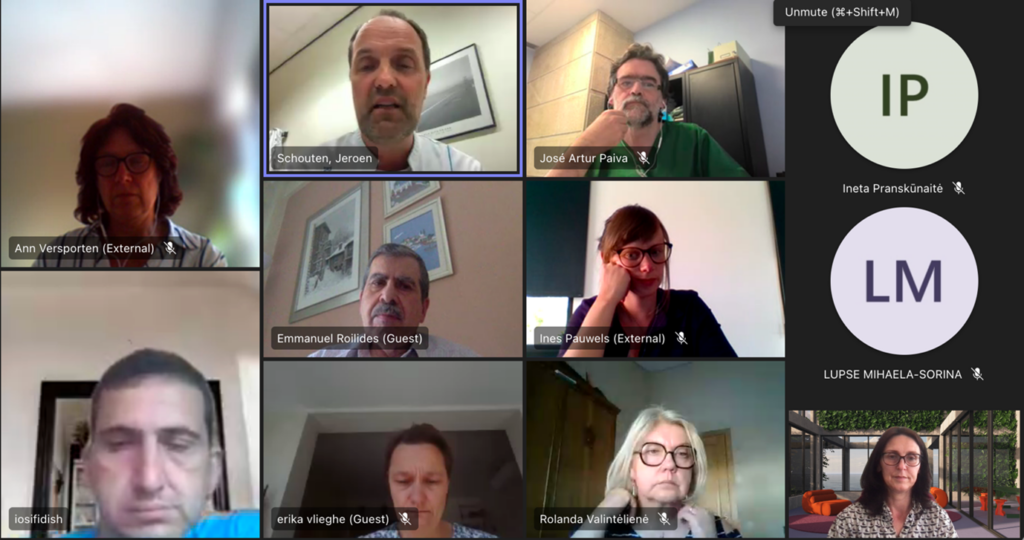
drive-AMS partners moving towards implementation
On 6 June 2023, country leads of the drive-AMS partner institutions held an online meeting to discuss the progress of the project and any challenges faced during the first 6 months of implementation.
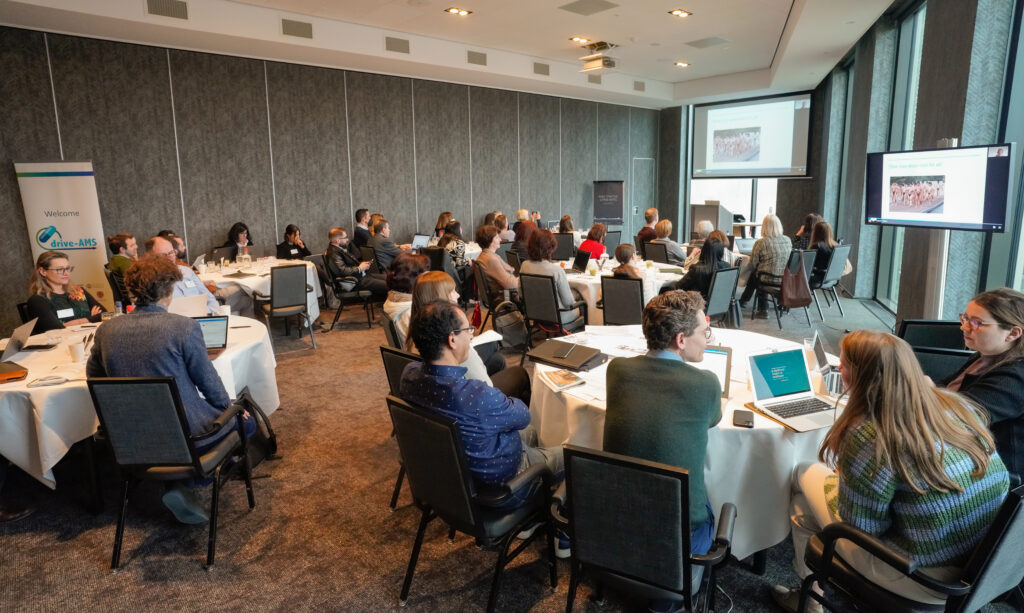
First drive-AMS event
Last week, drive-AMS organised a Training of Trainers Course in Nijmegen, hosted by Radboudumc. The course combined their Dutch AMS Masterclass and the Global-PPS tool and expertise. The future trainers were taught how to guide professionals and policy makers through developing and implementing a successful Antimicrobial Stewardship Program in their hospital, healthcare system, region or even country.
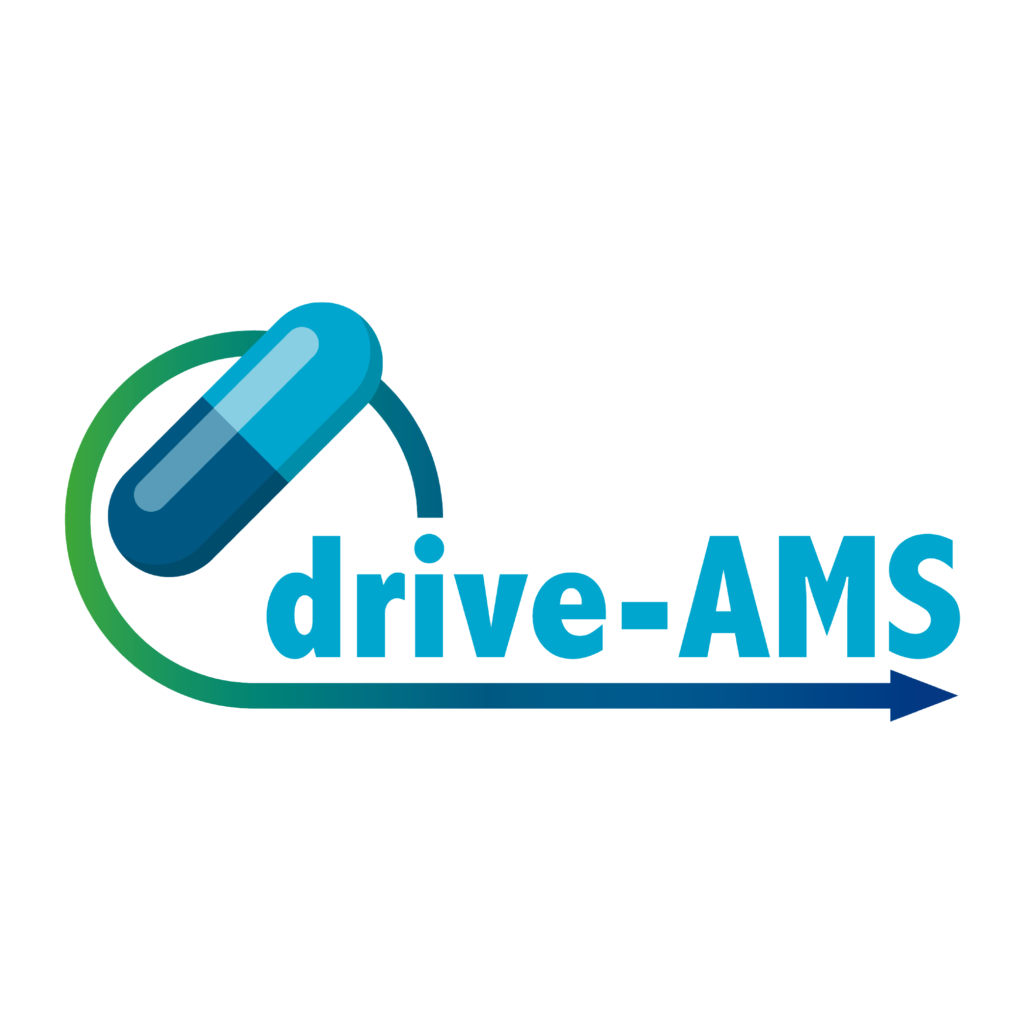
Launch of drive-AMS
On the 1st of November 2022, Radboud University Medical Centre (Radboudumc) and University of Antwerp joined forces to launch drive-AMS, a new project funded under the EU4Health Programme. This project aims to intensify antimicrobial stewardship (AMS) programmes across the European Union by improving prudent antimicrobial use (AMU) and strengthening AMU surveillance, which are both key priorities of the EU One Health Action Plan on AMR.
